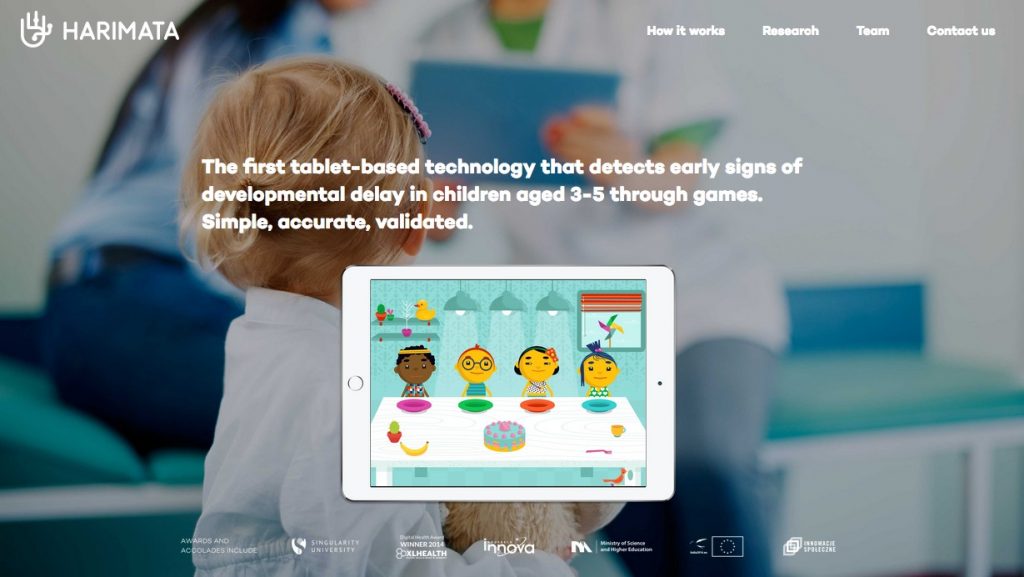Déceler un trouble du spectre de l’autisme chez l’enfant pourrait devenir plus simple grâce à un jeu sérieux pour tablette validé par la recherche.
Harimata est une jeune entreprise polonaise spécialisée dans le développement d’outils numériques visant le dépistage d’éventuels désordres d’ordre neuropsychologique et neuromoteur. Elle a travaillé entre autres avec Jonathan Delafield-Butt, professeur et chercheur en psychologie à l’Université de Strathclyde, en Écosse. Leur objectif? Créer un outil pour aider à déceler les troubles du spectre de l’autisme chez les jeunes enfants.
Un jeu sérieux qui analyse en détails les mouvements des enfants
Afin d’y parvenir, l’équipe a développé un logiciel de type « jeu sérieux ». Elle a demandé à 37 enfants âgés de 3 à 6 ans ayant déjà reçu un diagnostic de trouble du spectre de l’autisme d’y jouer. À l’aide de capteurs sensoriels, les mouvements des mains des participants étaient mesurés et analysés.
Les chercheurs ont remarqué que les enfants atteints de troubles du spectre de l’autisme avaient une façon particulière de bouger les mains. En effet, ils font des gestes différents de ceux des autres enfants sur l’écran, appuient avec une force différente et se déplacent distinctement sur l’écran, en faisant par exemple un usage particulier de l’espace.
Des impacts importants sur le dépistage précoce de l’autisme
Dans des propos rapportés par le communiqué émis par l’établissement universitaire responsable, l’un des chercheurs affirme que cette découverte pourrait avoir des impacts positifs importants dans le dépistage précoce de l’autisme. Pour sa part, un autre chercheur affirme que ce test est rapide, amusant et peu coûteux.
Pour en savoir plus, le rapport complet (en anglais) est disponible ici.
Rappelons que les jeux vidéo sont de plus en plus utilisés pour diagnostiquer ou traiter des problèmes qui ont un impact sur l’apprentissage. Par exemple, l’hiver dernier, on annonçait des avancées importantes sur le jeu vidéo pour traiter le trouble de déficit de l’attention avec hyperactivité (TDAH).






